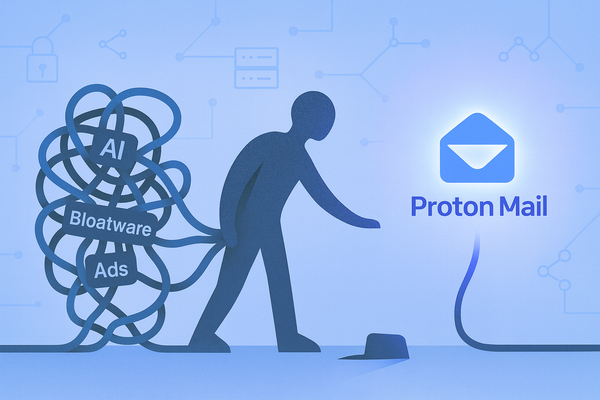How to Land the First Client for your Clinical Research Consulting Business
Overview of how to get your first client in your clinical research consulting business with example proven strategies.

When you first start your clinical research consulting business, landing your first client should occupy 99% of your working time.
Not getting the font colour of your website just right.
Not researching and downloading the next best productivity software.
You need to be focusing on getting that first client. Finding someone who will pay you to solve their problem will validate that you have a viable business idea. If you can't find paying clients, then you may need to rethink what problem you are trying to solve.
Now, if you are just starting your clinical research consulting business, you are probably wondering how do I get my first client?
In this article we will discuss how to go about landing your first client, and some creative ideas to get you started.
Who is your Ideal Client
Before landing your first client, you need to be really clear on who they are. Here are a few questions to help narrow this down.
Business or Consumer — A big first question. Are you looking to sell to other businesses or consumers?
Age — Are you trying to sell to new or established businesses? Or on the consumer side, are you selling to young adults? Seniors? Teens?
Location — Are your ideal clients local? Across the country? International?
Problem -—What problem do they have that you can solve? How urgent is the problem? Is it a seasonal problem (like personal taxes)?
How to Contact — Where does your ideal client spend their time? Are they browsing social media? Fielding phone calls or email all day? Are they at a physical location somewhere near by?
The answers to these questions should get you thinking about who your ideal client is and how you can help them.
Here is an example.
Let's say you want to offer medical writing services. Your ideal client could be biotech companies, specifically new local businesses that are having trouble staying on top of their writing and are generally in their offices from 8am to 6pm.
You need to Hustle
A quick note here that if you are looking to land your first client, you need to hustle.
Don't passively build a website, a blog, and hope to get sales.
Don't join freelance platforms and send out proposals hoping somebody picks you for the project from dozens of other submissions.
You should be actively working to get your first client. This means having conversations with people in person or over the phone. This means sending proposals and pitches. All day everyday.
Starting a clinical research consulting business is hard work. You need to put in the time if you want to succeed.
Get out there, talk to people, and sell!
Know your Value
Part of landing your first client is knowing what to charge for your work.
You want to get paid don't you?
This can be a daunting task when you first start out. A big fear is that if you name a price that is too high, no one will buy what you are selling. There is a temptation to price your products/services very low to attract sales.
This is the wrong strategy.
What you should be thinking about when trying to price what you offer, is what problem does this solve? Once you know what problem you are solving, think about what value your clients place on solving this problem for them.
Here's is a simple example, exchanging time for money. Let's think again about medical writing. An overworked business owner may spend 4 hours a week trying to keep up with the writing for their company. Their time may be worth $400 for those 4 hours. If you can save that time for them, they may be willing pay you a small proportion of that, maybe $100-120 per week.
Taking this one step further, if you specialize in regulatory writing that is more valuable than non-specialized medical writing.
Obstacles to the Sale
Once you know your ideal client and you know your worth, it is still hard work to land clients. Especially when you are just starting out. In this section we'll review four obstacles and how to overcome them.
Discoverability
This is the first and probably the biggest obstacle we face trying to start a clinical research consulting business.
No one knows you exist.
You can't sit around waiting for your first client to find you, you need to get out there and find them.
Remember that the burden is on you to discover your clients. Figure out your ideal client, then locate businesses or consumers that fit the profile.
In the case studies later on in this article we will review some strategies for finding clients.
Access
Now that you have found your potential clients, the next obstacle you will need to overcome is to let them know you exist and what problem you can solve.
Don't be spammy, but this can be in the form of an email pitch, cold call, in-person pitch, or even paid advertising.
A face-to-face conversation is really nice, but not everyone has the time or will give you the time. A nice happy medium is a quick phone call.
Talking on the phone is more personal than an email and both parties can get a first impression of whether or not there is value in working together.
It also saves a lot of time.
Consider a 5 minute phone call versus the amount of time reading and and writing email back and forth.
Trust
Ok, so you have let clients know you exist and what problem you can solve, but why should they give you money instead of your competitors?
You need to earn their trust. They need to feel comfortable that if they pick you, their problem will be solved.
If you are trying to land your first client, this is a hard obstacle to overcome. Referrals are a great way to build trust with potential new clients, but you likely won't have any referrals yet.
Until you have landed enough clients to start getting referrals, here are a few ideas to build trust:
- Have a case study where you solved a similar problem — If you are trying to run a clinical research consulting business it should be in an area that you have experience in, otherwise how can you add value for clients? A case study is good way build trust, as it demonstrates you can do what you say you can do.
- Offer a trial run — You see this all the time in software with a free trial. You could offer to review a potential clients problem in detail and provide an outline of your solution. You could provide a small service or give away a small amount of your time for free. This way, a client gets to see the great work that you do and will increase their confidence that you can take on the whole project and execute well.
Case Examples
Below are a few case examples to get your creative juices flowing. All of these examples are based on proven methods that have worked to find and land new clients.
Case #1
Let's take a bookkeeper as an example. Let's say your target clients are new local businesses. Well, you should have a local registry office where a list of all new businesses for a particular week or month are kept.
Where I live, these are published weekly online. The registered name of the business and region where the business was registered are given. From there, a little investigative work and you could find a local office to visit for any businesses that match your ideal client and pitch them on your services.
Case #2
This example comes from Ali Abdaal and his conversation with Nicolas Cole on the Deep Dive Podcast. The whole conversation is brilliant, but at around the 1 hour mark is where this tip comes in.
Basically, if you wanted to land your first clients as a freelance YouTube thumbnail designer, an ingenious way to do this is to offer a few for free.
Find your ideal clients that want to work with. Make a few thumbnails for them as samples. Send them out to your ideal clients and ask for their future business.
The whole idea behind this method is that if you can solve a problem for a client, they will throw money at you to solve it. In this example, if you can create awesome thumbnails for clients they will want to work with you.
Case #3
This method works great for writing too, as discussed by Nicolas Cole, again on the Deep Dive Podcast.
Find your ideal clients. Create pieces of writing that solve a problem (copywriting, ghostwriting, content writing). Send them out and if they to intend solve a problem, you will land your first clients!
Case #4
I hired a company to update my website for me after meeting them at a seminar.
This was a seminar that they put on for free for local business owners. A great idea to land your first client! The seminar was generally about online marketing, but during the seminar the company built trust that they could actually solve my problem (updating a website).
They won my business, and probably a lot of other clients that day.
Summary
In this article we discussed how to go about landing your first client, and some creative ideas to get you started. Now get out there and execute! I believe in you.
If you found these tips helpful and landed your first client I would love to hear about it. Or if you have other strategies that worked for you please let me know. Get in touch!




